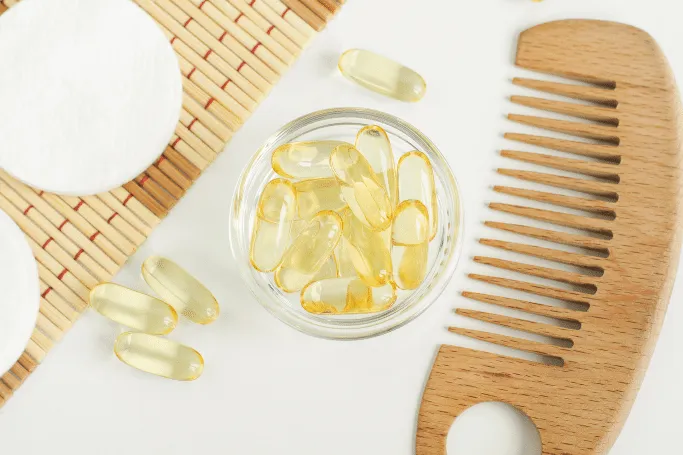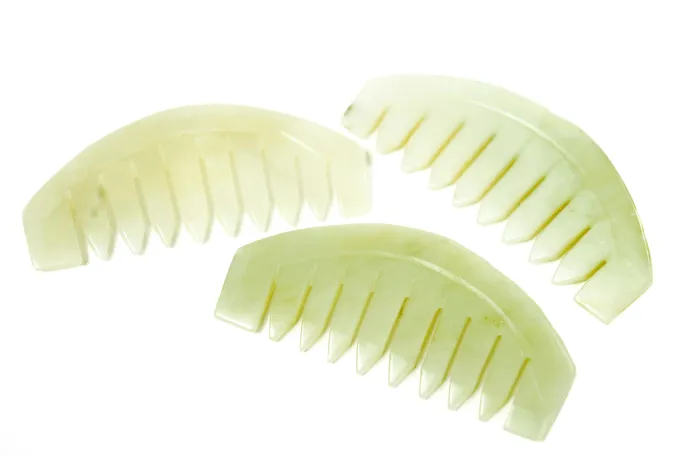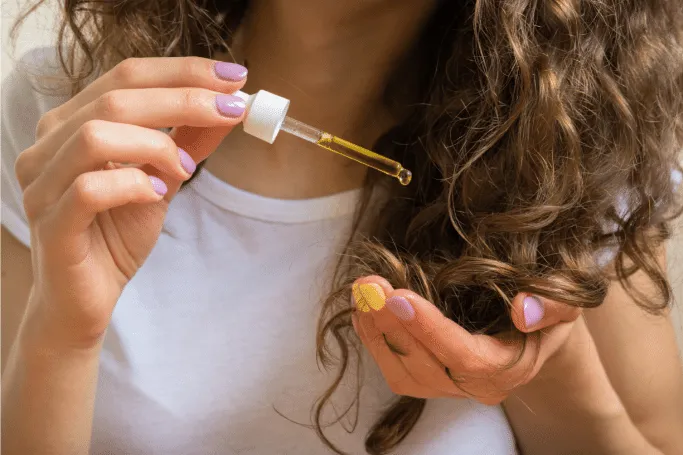Surprising Fish Oil Hair Growth Benefits

There is some indication that taking fish oil supplements will have a similar effect to eating more whole fish that is rich in omega-3 fatty acids, but this is not conclusive.
The ability to produce long, glossy locks is one of the most exhilarating claimed advantages of omega-3 fatty acids, which are widely present in fish oil.
According to Lynne J. Goldberg, MD, the director of the hair clinic at Boston Medical Center in Massachusetts, "Omega-3 fatty acids are not generated in the body, so you need to eat foods that contain them or take a supplement." According to the National Institutes of Health, plant-based foods like walnuts and flaxseed include alpha-linolenic acid, or ALA, a portion of which is then turned into EPA and DHA. Fish and seafood provide DHA and EPA. Omega-3 proponents assert that including adequate amounts in your diet can aid in feeding hair follicles and promoting hair growth.
Are Omega-3s Beneficial for Hair Growth?
There aren't many research on omega-3 fatty acids and hair development, and even fewer that focus specifically on fish oil as a supplement.
Male-pattern baldness, also known as androgenetic alopecia, can affect both men and women, according to MedlinePlus. In one small study published in the February 2017 issue of the Journal of Clinical and Aesthetic Dermatology, 10 participants with the condition received a twice-daily supplement containing a combination of fish oil, flaxseed oil, antioxidants, and melatonin. Eight individuals—representing 80% of participants—had more hair after around six months. However, it's critical to keep in mind that this was a relatively small study, and there was no control group.
A previous study, with 120 individuals, was released in the Journal of Cosmetic Dermatology in 2015. It compared a group taking a supplement with components including fish oil and vitamins C and E to a control group. In the supplement group, 62% of people experienced an increase in hair density after six months, compared to 28% in the control group. Perhaps surprisingly, when comparing before and after images of their scalp, more than half of the women in the control group reported noticing an increase in hair growth. In order to fully grasp the potential process, Dr. Goldberg, who was not involved in either study, states that "I truly think we need more data and more investigation."
Fish oil or omega-3s may be included in supplements, along with other substances like antioxidants. We shouldn't jump to the conclusion that taking fish oil or omega-3s alone in a supplement will cause hair to grow because these nutrients may work synergistically together.
Applying a fermented mackerel oil topically to mice' whiskers was used in a September 2018 study published in the International Journal of Molecular Sciences that revealed the chemical helped stimulate follicles, potentially by triggering the "growth" phase of hair.
That particular study involved rodents. Overall, according to Kerry Yates, a trichologist and the creator of Dallas' Colour Collective, "topical administration of fish oil will not assist hair growth or scalp health." Additionally, it smells fishy, and some people are put off by the stench when applying pure fish oil to their scalps.
The best way to promote hair development, according to Goldberg, is to maintain a good diet, use mild hair products, and get treatment if you're balding so that any underlying medical concerns may be taken care of.
What Is the Best Form of Fish Oil?
According to the National Center for Complementary and Integrative Health, there are numerous ways to obtain fish oil, including fish oil supplements, fish liver oil supplements (such cod liver oil), shellfish, and entire fish (NCCIH). According to the Mayo Clinic, fatty or oily fish, such as salmon, sardines, mackerel, cod, herring, trout, and canned tuna, have the highest concentrations of omega-3s.
These types of fish offer a range of extra vitamins and minerals not present in supplements. Registered dietitians advise choosing entire fish over tablets if you want to take advantage of the possible benefits of fish oil. Debra Jaliman, MD, a board-certified dermatologist in New York City and the author of Skin Rules, advises choosing a supplement for your hair, skin, or nails that employs small fish to reduce mercury levels. She enjoys Nordic Naturals because they use fish oil from sardines and anchovies.
How Beneficial Is Fish Oil for Hair and Nails?
The contribution of fish oil to healthy hair and nails is not well supported by research. The most crucial thing is that you're getting the omega-3s your body need for optimal overall performance. While supporting any shortages you might have, several vitamins that claim to be able to develop hair do not promise hair growth, according to Yates.
It's unlikely that you are an omega-3 deficiency if you have a healthy diet and are well-nourished, according to Goldberg. And it's not obvious whether taking more omega 3s than you require through a supplement will help if you don't have a shortfall, according to Goldberg.
Can Cod Liver Oil Make You Lose Hair?
There are no studies proving a link between cod liver oil and healthy hair in general, nor are there any studies proving that it causes hair loss. However, a study published in the January 2017 issue of the journal Dermatology Practical & Conceptual suggests that taking too much of some vitamins, such vitamin A, may make hair loss worse. According to the NCCIH, cod liver oil contains EPA and DHA as well as vitamins A and D. The group issues a warning that different products have different levels of these two vitamins. Too much vitamin A may be present in some supplements, which could be harmful to your health and hair. It's crucial to pick supplements from reputable companies that have the approval of your medical team.
Related posts



